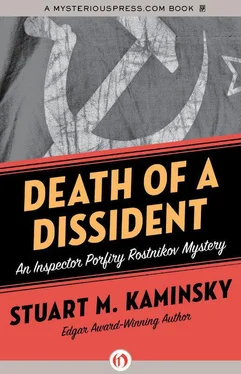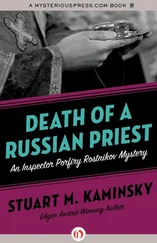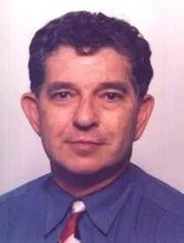Stuart Kaminsky - Death of a Dissident
Здесь есть возможность читать онлайн «Stuart Kaminsky - Death of a Dissident» весь текст электронной книги совершенно бесплатно (целиком полную версию без сокращений). В некоторых случаях можно слушать аудио, скачать через торрент в формате fb2 и присутствует краткое содержание. Год выпуска: 2012, ISBN: 2012, Жанр: Полицейский детектив, на английском языке. Описание произведения, (предисловие) а так же отзывы посетителей доступны на портале библиотеки ЛибКат.
- Название:Death of a Dissident
- Автор:
- Жанр:
- Год:2012
- ISBN:9781453266298
- Рейтинг книги:4 / 5. Голосов: 1
-
Избранное:Добавить в избранное
- Отзывы:
-
Ваша оценка:
- 80
- 1
- 2
- 3
- 4
- 5
Death of a Dissident: краткое содержание, описание и аннотация
Предлагаем к чтению аннотацию, описание, краткое содержание или предисловие (зависит от того, что написал сам автор книги «Death of a Dissident»). Если вы не нашли необходимую информацию о книге — напишите в комментариях, мы постараемся отыскать её.
Death of a Dissident — читать онлайн бесплатно полную книгу (весь текст) целиком
Ниже представлен текст книги, разбитый по страницам. Система сохранения места последней прочитанной страницы, позволяет с удобством читать онлайн бесплатно книгу «Death of a Dissident», без необходимости каждый раз заново искать на чём Вы остановились. Поставьте закладку, и сможете в любой момент перейти на страницу, на которой закончили чтение.
Интервал:
Закладка:
“You are a parasite,” hissed Karpo bewildered by his predicament.
“Perhaps,” agreed Kroft. “But would I be less of a parasite if I didn’t work at all? No one wants to hire a sixty-year-old arielist with a bad leg and a prison record.”
“You are sixty-two,” Karpo corrected.
“Look at him,” Kroft appealed to the old woman and the boy. “He lies there in helpless agony and he can’t help arguing with me about a few years. What is your name?”
“Deputy Inspector Karpo, but that is not meaningful at present. You can help me up, but do so carefully.”
“Thank you, Mister Detective Inspector Karpo,” Kroft said with sarcasm and a deep bow. “It will be an honor to help such a fine fellow as you. Perhaps you will bear in mind my consideration when you testify at my trial, if I am to have one.”
With Kroft’s help and the watchful eyes of the old woman and boy, Karpo stood on wobbly legs. He almost fell, but Kroft helped him.
“Are they so short-handed that they send wounded police out to catch criminals?” Kroft asked as he helped Karpo to the door. “Or am I so insignificant a criminal that I merit only the lame for my pursuer?”
“Parasite,” repeated Karpo.
“I didn’t rob a single Russian,” Kroft insisted helping Karpo down the hall to his room. “Not a single Russian, only Africans and Indians. If I had not done this, I would have indeed been a parasite on the state, which would have fed and clothed me. Look how I live. You think I get rich being a criminal? What about the real criminals who take government contracts to make one thing and make something else more profitable instead?”
“Dress,” said Karpo, leaning against the door as Kroft reached for his pants.
“Not the uniform,” Karpo had to bark. Kroft shrugged and laid it aside, saying, “It’s the only decent clothing I own.”
In a few minutes, Kroft was dressed, and Karpo was ready to pass out from the pain.
“Public enemy number two, as the Americans say, is ready,” sighed Kroft.
His coat was indeed badly frayed and his hat a worn cloth affair.
“Perhaps it is better I look like this,” sighed Kroft. “You know, play for sympathy, though I far prefer dignity even at the price that must be paid for it.” He looked at Karpo for an answer but got none, so Kroft went on. “I know. I know. Muscovites are all philosophers. Let’s go, if you can make it.”
It took them almost four minutes to get down the three flights of stairs and another ten minutes to find a taxi. The driver didn’t want to stop, but Kroft had leaped out in front of him.
“This is a policeman,” he shouted at the red-faced driver. “A policeman. We are both policemen. Take us to Petrovka.”
Along the way, Karpo passed out twice, regaining consciousness in a kind of dim twilight. He had no recollection of ever reaching Petrovka or being helped in and up the stairs by his prisoner.
“It is a brochure, a pamphlet advertising an English aftershave lotion, a kind of perfume for men,” Rostnikov told Inspector Vostok. Vostok could not read English and had brought the odd piece of paper into Rostnikov’s office. It was well known that Rostnikov read English well though it was not generally known that this familiarity came primarily from reading black market American mystery novels.
“A perfume for men,” the burly Vostok repeated incredulously. “For men to wear, like the aristocrats before the Revolution?”
“Yes,” agreed Rostnikov.
“Like women in France?” Inspector Vostok continued.
“Something like that,” agreed Rostnikov. “Where did you get it?”
“In the room of one of those three boys, the ones who were caught robbing the liquor store,” Vostok said, staring at the paper in his ruddy hands.
“The dead boy’s room?” asked Rostnikov.
Vostok shrugged. “I don’t know.” And then he was gone.
This was the point at which Tkach had reached Rostnikov by phone, after which Rostnikov called and missed Karpo. He immediately ordered a car and headed for Petro Street. The driver was the same one who had taken him to Granovsky’s two nights earlier. He said nothing, which suited Rostnikov.
Tkach was standing in the door of the Malenko apartment, transfixed by the bloody figure of the dead woman. It was still morning, and the bright light of day made every detail of the scene clear and repulsively beautiful.
“Three in two days,” Rostnikov said easing past the younger man. “Did you call the evidence people?”
“Yes, immediately after I called you,” said Tkach.
“Good, have you looked around?”
“Yes,” said Tkach. “The murder weapon appears to be a hammer found on the floor. No good fingerprints on it. I can find no picture of Ilyusha Malenko but I will find one and get it out to the uniformed…”
Rostnikov looked up at the corpse and wondered at the fury that had caused such an assault.
“You think the husband did this, then?” he said.
“Yes, of course. He killed Granovsky, the cab driver, and his wife.”
“Hmmm,” said Rostnikov. “You don’t think the poor man could simply be wandering around Moscow or at school or visiting, unaware that someone has done this?”
“No,” said Tkach. “It is so unlikely as to not be reasonable. He lives on Petro Street, and his wife and friend are both killed within a day’s time.”
“Maybe he is scheduled to be the next victim,” Rostnikov tried.
Tkach was confused but convinced of his observation.
“No, I talked to him yesterday. He was strange. I can see that now. When we find him, I’m sure we will find the murderer.”
“His motive,” said Rostnikov opening a dresser drawer. “Why?”
“He is clearly mad,” Tkach almost laughed.
“Yes,” nodded Rostnikov, “but even a madman has reasons, even mad reasons. He didn’t kill you yesterday. There are certainly others he has met in the last two days whom he has not felt the need to murder with some tool at hand.”
“I don’t know,” said Tkach. “We can find that out when we find him.”
“Yes,” said Rostnikov, “but if we know why he did these things, the possibility would exist to prevent him from doing even more.”
“I see,” said Tkach.
“Then, while we are trying to find Ilya Malenko, it might be a good idea to see some more of his and Granovsky’s friends to try to puzzle this out. Take your list and go.”
Tkach went and Rostnikov stood alone. He had avoided staring at the corpse with Tkach present. Now he felt himself compelled to do so, not for professional reasons, but for reasons he could not fully understand. He felt the need to reach up and take her down. He could do it easily. Her weight was nothing. There was so little of her, but it was a weight he could not lift. She was an accusing weight.
An hour later he was back in Procurator Timofeyeva’s office, in the same black chair, the same cold room. He watched the square of a woman eat a sandwich and drink some tea at her desk. She looked as if she had not slept. She had offered him tea, but he had refused. His task would not be easy.
“So,” he said. “There is reason to believe that Ilya Malenko killed Granovsky.”
“Not necessarily,” she said, holding up a finger to which a large bread crumb adhered. “He could have killed his wife and Vonovich have killed the others.”
“Possible,” said Rostnikov. “Very coincidental. We don’t have that many murders in Moscow. Even if Malenko didn’t kill his wife it is certain that Vonovich, who was with us, did not do it. There is a connection.”
Procurator Timofeyeva removed her glasses and massaged the bridge of her nose with her thumb and forefinger never putting down the sandwich of stale bread, and savoring every bit of gastronomical discomfort.
Читать дальшеИнтервал:
Закладка:
Похожие книги на «Death of a Dissident»
Представляем Вашему вниманию похожие книги на «Death of a Dissident» списком для выбора. Мы отобрали схожую по названию и смыслу литературу в надежде предоставить читателям больше вариантов отыскать новые, интересные, ещё непрочитанные произведения.
Обсуждение, отзывы о книге «Death of a Dissident» и просто собственные мнения читателей. Оставьте ваши комментарии, напишите, что Вы думаете о произведении, его смысле или главных героях. Укажите что конкретно понравилось, а что нет, и почему Вы так считаете.












